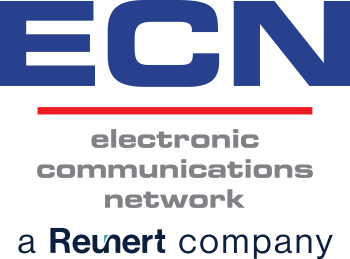ECN attended the Parliamentary Portfolio Committee on Communications (PPCC) meeting on interconnection rates and was very impressed by the political will of Parliament to urgently deal with the issue of interconnection rates charged by Vodcaom, MTN and Cell C that are amongst the highest in the world. It is clear that high interconnection rates serve only two purposes, namely to keep retail tariffs high and keep competitors out of the market. In that regard they have been very successful in the South African context.
The PPCC has passed a resolution to the effect that interconnection rates should be reduced to 60c by the 1st of November 2009 and intends holding public hearings. The PPCC has also stated that Parliament will, if necessary amend the Electronic Communications Act.
ECN agrees that urgent and decisive action needs to be taken to lower interconnect rates and supports and applauds the resolution taken in that regard, but wishes to caution that Parliament, however inept and ineffective as ICASA may seem, should be very careful about encroaching upon the independence of the regulator. To the extent that ICASA regulates broadcasting, its independence is guaranteed by the South Africa’s Constitution. The ICASA Act affirms that ICASA is independent and subject only to the Constitution and the law.
ICASA is obliged to be impartial and perform its functions without fear, favour or prejudice. The legislation also provides that ICASA must perform its functions without political or commercial interference. It is because of this entrenched independence that the Minister is only permitted by the Electronic Communications Act to issue policy directions that are of a general nature and ICASA is only obliged to consider (and not blindly follow) policy directions.
ECN’s primary concern is that any Ministerial policy direction or amendment to the Electronic Communications Act that detracts from ICASA’s independence will be unlawful and the incumbent operators will be quick to seize on this and have the policy decision or amendment set aside. Aside from the legalities, an independent regulator is required for stability and business certainty. South Africa’s standing in the international business community took a substantial knock earlier this year when ICASA failed to act in an independent manner when it succumbed to apparent political pressure in seeking to prevent the Vodacom listing. An independent regulator is particularly required to prevent conflicts of interest where government holds substantial interests in electronic communications licensees.
Independence is a critical attribute for a regulator to be effective. If the regulator lacks independence, its decisions will be neither objective nor transparent. Encroaching on ICASA’s independence to lower interconnection rates will have short term benefits but, in the long term, we fear that industry (and, ultimately, consumers) will be prejudiced if the independence of ICASA is compromised. ECN urges government to deal with interconnection rates in such a way that ICASA’s independence is not compromised or called into question.
ECN is of the view that the Electronic Communications Act does indeed permit ICASA to prescribe regulations on interconnection pricing before completing market studies envisaged by Chapter 10 of the Act. ECN is aware that, even though ICASA has been provided with an opinion from Senior Counsel on this issue, there is nervousness and reluctance on the part of ICASA to prescribe the regulations before it has completed its Chapter 10 studies.
ECN therefore suggests that the Electronic Communications Act be amended to make it absolutely clear that ICASA must prescribe regulations on prices and pricing frameworks in the absence of Chapter 10 studies and ICASA is obliged to do so within a certain time period.
In addition, the legislation should be amended so that ICASA is directed to consider international benchmarking studies when prescribing the regulations. If this approach is adopted and Icasa do their work expeditiously and with regard to their mandate, we will get to the same result i.e. a mobile interconnect rate of 60c or even lower by the end of the year, but without any negative or unintended consequences.
As the organisation responsible for initiating this campaign, it is very tempting to play to the public gallery and call for ICASA’s head. No doubt this would yield an enormous amount of fun in the short term, but unfortunately would be disastrous for SA in the long term. In our view the National Assembly is empowered to appoint and remove ICASA councillors and approve its budget. We strongly recommend that along with the necessary changes to the legislation, the PPCC should also appoint independent decisive thinkers on the Icasa council who have the courage to act without fear, favour or prejudice. This is the correct path to affordable access to electronic communications.
